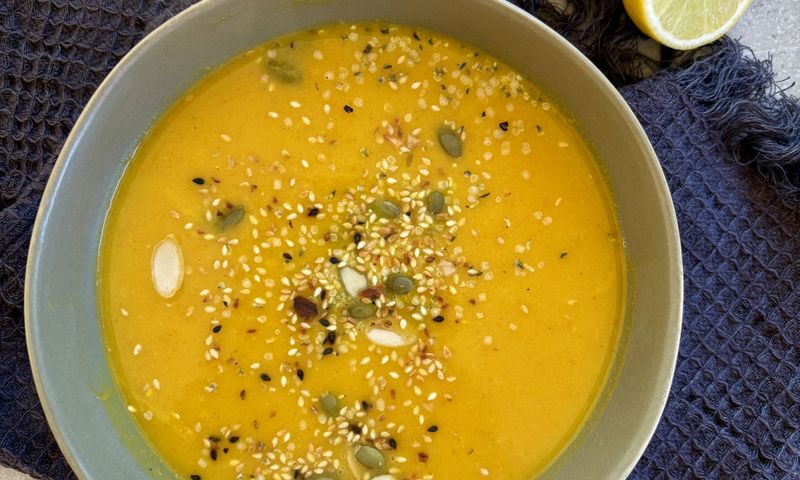How often do we take the time to be mindful of our emotions when eating? Whether it's reaching for chocolate after a tough day, craving toast when we're lonely, or even skipping meals when we're stressed — our emotions can play a huge role in how and why we eat. Nutritional expert Mel Bald chats with Healthier Together about our emotional connection to food.
Listen to the 20-minute podcast here.
But what is emotional eating?
Emotional eating is when we use food to cope with emotions rather than to satisfy physical hunger. Distracting yourself when you’re sad with a sweet treat, finding a snack when you’re bored or rewarding yourself after a tough day with your favourite food are all examples of emotional eating. Some research suggests that up to 75% of the time that we overeat or choose less nutritious foods, it’s not because we’re physically hungry, but because we’re responding to how we feel.
That’s not to say that having a tasty treat after a hard day of work is abnormal; in fact, it’s important to make sure you de-stress with a method that works for you. However, like all things, this must be done in moderation. Otherwise, the risk of mindless eating habits or disconnection from our body’s hunger signals increases.
How can you tell the difference between true hunger and emotional eating?
Physical hunger comes about naturally and gradually; your stomach will growl, and you’ll feel empty inside. Emotional eating seems to be spontaneous, and the cravings will be specific. You’ll opt for foods that contain sugar or carbohydrates, as opposed to something more nutritious.
People who emotionally eat may feel guilty afterwards. Questions may arise like “why did I eat that?”, “how did I finish the whole packet?” It’s difficult to deal with these responses, but understanding how this habit comes to be, and what causes it, makes it easier to change your ways.
What triggers emotional eating?
Food can be used as a coping mechanism to deal with negative emotions. When we are stressed, our body releases a hormone called cortisol, which can increase appetite. It increases the body’s demands for foods high in sugar, fat or salt. Cortisol’s main evolutionary function is to prepare the body for action, converting glucose into energy. This is why the body wants some fast fuel to restore the lost glucose so we can gain more energy. Think of it like your body believing it’s being chased by a tiger, and it needs some energy to run away fast!
Being bored can also lead to emotional eating. After all, eating is an activity, and if you have nothing else to do, it may just provide that stimulation that you were looking for.
There are plenty of different reasons why emotional eating occurs, but it’s important to remember that it’s not entire psychological or due to a lack of willpower. As we’ve seen, there’s a biological component to emotional eating as well.
When we consume foods high in calories or sugar, our brain releases dopamine. You may have heard of dopamine before; it’s the primary neurotransmitter in the brains’ reward pathway, providing temporary happiness and relief to your body. Since emotional eating is done to combat negative emotions like boredom, stress or loneliness, it’s no wonder that people reach for these dopamine releasing foods.
Where does this habit even come from?
As infants, we make the connection between being fed and feeling warm and protected. As we grow older, this connection is reinforced. For example, you may be rewarded for good behaviour with treats; “if you’re good, you can have an ice cream.”
This perception of food is shaped by our family culture, the media and our everyday environment. All these factors working together can create habits that last into adulthood.
And again, the dopamine rush we get from certain foods really strengthens the associations we make between eating food and feeling good. It will cause us to repeat this behaviour, which can solidify it as a habit.
So how do you be more mindful of your food?
Firstly, when you reach for some food, take a second to stop and think about your choice. Consider; “am I physically hungry”, “when did I last eat?”, “what am I feeling right now?”
These questions can help you create awareness of your current emotional state, as well as the food you’ve autopiloted towards.
Eating without distractions can also help you be more mindful of your eating. Try not to put on the TV or play on your phone while engaging with food. When your mind is distracted by stimulation, it won’t receive the signals from your body telling you that you’re hungry or full.
Additionally, try shifting focus for 5-10 minutes. Instead of reaching for a snack, have a list handy with quick fun things that can either distract or give you a natural dopamine hit and see if the stress, boredom or other negative emotion passes. Even a relaxing shower, washing your face or having a warm cup of tea can quickly change your mood for the better.
If you find that you’re reaching for snacks after dinner, try brushing your teeth straight after your meal. You’ll be surprised how something as simple as clean teeth becomes a barrier to continued snacking.
If you’re looking for more support in your eating habits, consider talking to a trusted friend or a healthcare professional such as your doctor or a dietician. You can make positive changes, sometimes it just requires patience and self-compassion. Try not to be too hard on yourself and always find support when you need it.
Want even more?
You can check out these useful links for more tips and tricks:
Visit the Healthier Together series to listen to this podcast and others in full.
Find more nutrition advice from Mel Bald including healthy eating and recipes to try.




